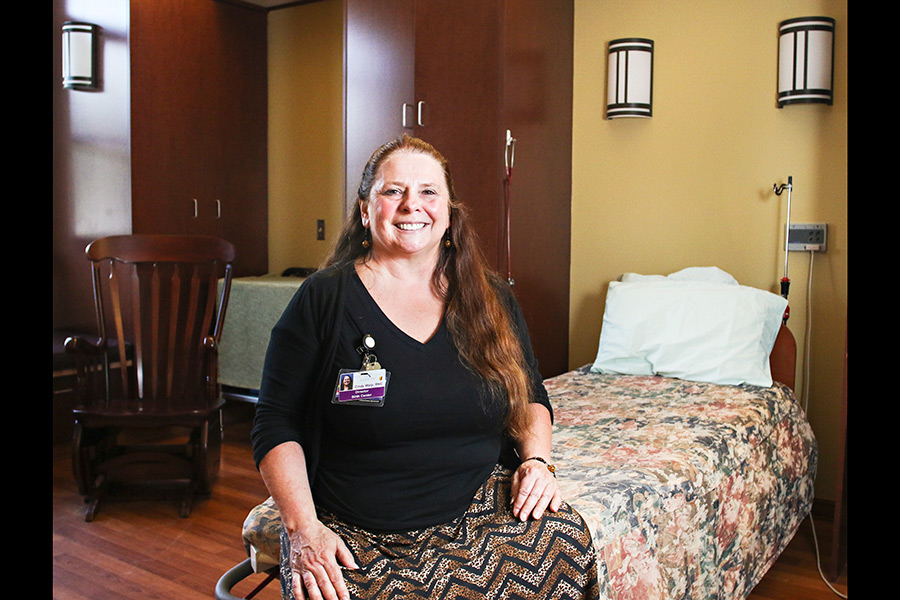The day before Mother’s day, 10 women gathered at North Valley Hospital in Whitefish. Among them was April Coen, the mother of 11-year-old Grace and 7-year-old Micah. Though she could have spent hours gushing about her two beautiful children, she had a different story to tell that afternoon.
The mothers were gathered for Postpartum Tales, a storytelling workshop with Missoula-based activist and performer Melissa Bangs, who had visited Whitefish in March on tour with her one-woman storytelling nonfiction performance, “Playing Monopoly with God.” The show chronicles her long journey through postpartum psychosis mania so severe that she was hospitalized.
Bangs returned this spring to help other women share their own stories. The statistics vary, but according to the Center for Disease Control and the American Congress of Obstetricians and Gynecologists, anywhere from 5 to 25 percent of new mothers will experience postpartum depression. Yet a lack of awareness means that some mothers never understand what’s happening to them, and others, feeling guilty or ashamed, keep quiet.
The North Valley Hospital Birth Center hosted the workshop to help mothers heal in a safe, empowering space. It also served to open dialogue about postpartum depression in the Flathead Valley. Director of the hospital’s Birth Center, Cindy Walp, said that the first step in addressing mental illness in new mothers is “figuring out the scope of postpartum depression in Montana.” Listening to the stories provided Walp, who experienced some postpartum depression herself, with more insight into the often traumatic experience.
“It was fabulous,” she said. “It was very beneficial to the participants, and many said they would be willing to come forward later to share their stories with the staff.”
Coen, one of the women inspired to share her experience, is a lifelong Kalispell resident who performs double-proxy marriages for military members. Like Bangs, she had been hospitalized, about six weeks after giving birth to a 9 pound, 11 ounce Grace at 7 p.m. on July 22, 2004.
“She came out perfect,” Coen said.
Then the next morning, Coen woke up crying and couldn’t stop.
“I would hold her, and I didn’t feel connected to her,” she said. “Like it could have been someone else’s baby I was holding. I didn’t feel like she was mine. I had concerns, like ‘this isn’t right, I should be happy about this, I’m pretty sure.’”
In a Lamaze class, Coen and her husband Chris had briefly learned about postpartum depression, and Coen knew that history of mental illness and self-injury increased her risks. (The list of factors that place moms at a higher risk also includes being a single mother, an “older” mom over 35, or a survivor of abuse). Still, Coen hoped that she just had “baby blues,” which can cause women to feel anxious or upset during the first few days after childbirth.
Postpartum depression, however, refers to persisting, all-consuming feelings of sadness, anxiety, and despair caused by sharp hormonal changes. In severe cases, such as the recent Bozeman tragedy in which a woman shot her husband and 6-month-old son before turning the gun on herself, depression can induce violent behaviors.
“For moms that do have those kinds of thoughts, there’s more stigma,” Coen said. “The mothers think, ‘nobody’s going to understand this—even I don’t understand why I want to hurt my child…’ There’s no logic to it.”
Coen said with relief that she never entertained thoughts of hurting her baby, but noted, “every time I was around her, my body was trying to get her away from me. It was in rushes, my body felt like when you’re dreaming and you’re falling off a cliff and you jerk yourself awake.”
Toward the end of summer 2004, Coen was admitted to the Pathways Treatment Center for one week – the psych ward’s the first nursing patient – and began a long but successful journey of counseling and finding medication. She says that while her OB/GYN and Grace’s pediatrician were “amazing … it was only because I was so vocal, I think. I was desperate for someone to fix me, desperate to help.”
“I kind of wished that after Grace was born, that when they noticed I couldn’t stop crying before I left the hospital, a little more investigation could have been done,” she continued. “I think there could be a lot more education.”
Walp said that earlier identification through more rigorous assessment is one of her main goals for her nursing staff. She also hopes that greater awareness of the condition and its symptoms, as well as better organization of the resources available for mothers, will contribute to more effective care.
“Awareness in the government is coming up. So hopefully we can get more funding. But it might take a while to shape this and put it all together,” she said of her plans to bring more training to the Flathead and organize a regular support group.
“So many women just think, ‘I’m a bad mom, I should be happy,’” Walp said. “We’re trying to bring [postpartum depression] into the open. It’s a medical condition, a psychological condition. We can help.”
